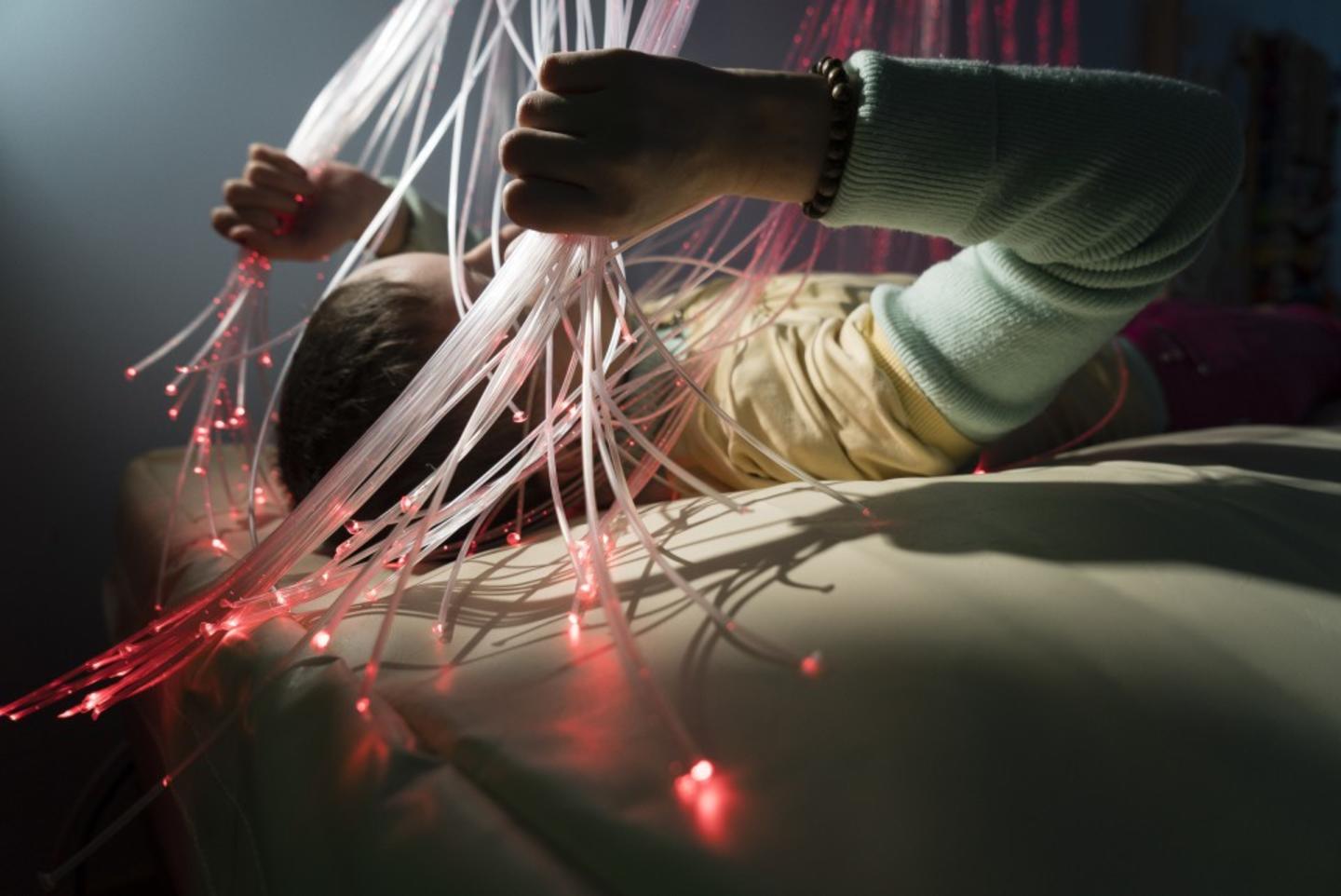Individuals with disabilities face barriers in multiple spheres of life which can lead to a high risk of social exclusion. Funded through the EEA Grants ‘Children and Youth at Risk’ programme in Romania, the Cluj County Council is helping young people with special needs by supporting their integration into society.
To this end, three innovative multi-sensory rooms have been installed in the Special High School for Technology SAMUS in Cluj-Napoca, and the Recovery and Rehabilitation Centres for Neuro in Gherla and Jucu. The rooms are specially designed to create a comfortable, safe and stimulating environment where individuals with developmental disabilities can strengthen their social and cognitive skills, such as alertness, concentration and communication. By developing these skills, the students gain a stronger sense of autonomy and control which benefits them as they participate in society.
An adaptable solution
The rooms offer several activities that focus on different areas such as lighting, colours, shapes, sounds, scents and touch. The students enter the rooms in small groups of three to six with a team consisting of a social worker, trainer and a psychologist. Even though the students use the rooms in groups, the objectives of the therapy can differ from one person to another. This versatility is one of the key benefits of the new facilities:
“You can adapt the room to each student’s needs, no matter whether they’re in need of relaxation or the motor skills development. For example, if someone is very nervous, he or she can go into the room to simply relax,” explains Mihaela Tripon from the Cluj County Council, who adds that the rooms can even be used as a reward.
Once they are in the room, the students are free to do whichever activity they feel like:
“One day they may want to explore, other days not. We encourage them to choose on their own – as specialists our role here is to provide support,” says Tripon who emphasises that encouraging choice is an essential part of the multi-sensory therapy.
A popular part of the day
The new rooms are a popular activity among the 265 students benefitting from the project:
“The students are generally very enthusiastic. In the beginning some were scared but after trying the room they wanted to come back again and again,” explains Tripon. The students access the room according to a pre-set schedule. However, the room can be particularly efficient for individuals with severe problems – especially when they’re having a crisis and need a safe environment to relax. In those instances they enter the room alone with their teacher.
Leaving the class room
The therapy also extends beyond the rooms. Through the project, the students have participated in several workshops aimed at supporting skills that will help them in their everyday lives. This includes basic health education focusing on oral and personal hygiene, as well as the importance of eating well. The students have also been able to participate in relaxing and educational activities focusing on social interaction outside of the school environment, such as a trip to the botanical garden in Cluj-Napoca and a visit to the zoo:
“These trips gave the students an opportunity to learn while enjoying things that they don’t have the chance to do very often,” explains Tripon.
The project is one of over 100 projects supported from Iceland, Liechtenstein and Norway through the Romanian ‘Children and Youth at Risk and Local and Regional Initiatives to Reduce National Inequalities and to Promote Social Inclusion’ programme.
Read more about the Romanian ‘Children and Youth at Risk’ programme
